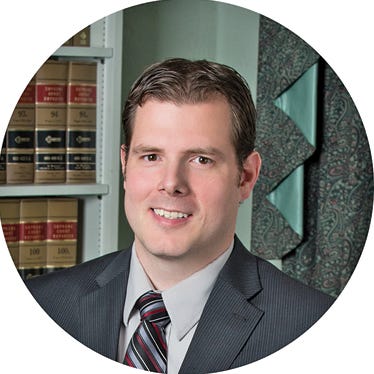February 8, 2023

One of the biggest tax loopholes is a concept known as step-up in basis. If a person is married and resides in one of nine community property states, such as Wisconsin, step-up in basis is especially beneficial.
When a person or legal entity purchases an asset to be used in a trade or business, the initial purchase price is the tax basis in that asset. If the asset is depreciated or deducted as a Section 179 expense on their income tax return, that reduces the tax basis. When an asset that is depreciated or expensed is sold, then the seller has to pay tax on the difference between the sale price and the seller’s remaining tax basis. (If the asset has been fully depreciated or has been expensed, the seller’s tax basis would be zero.) Some assets, such as farmland, are not depreciable or cannot otherwise be expensed on a tax return.
However, there is a special tax law (or loophole) that allows the asset to “step up” to a new tax basis equal to its fair market value upon the death of the owner. If the owner is not married, then the basis of the asset steps up to its full value when the owner dies. If an asset is owned by a husband and wife in one of the 41 individual property states, then the asset gets only a half step-up in basis. If the owner is married and lives in one of the nine community property states and the asset is marital property (one way to ensure this property is marital property is to do a marital property agreement in Wisconsin), then the asset gets a full or double step-up in basis.
There are typically two ways to determine the fair market value to establish the new basis when someone dies. One is to sell the asset in an “arms-length” transaction (meaning to a bona fide third-party purchaser) within six months or so of when the person dies. The other is to have the asset appraised by a qualified appraiser.
For example, if a husband and wife in a community property state bought farmland many years ago for $500 acre and made no capital improvements to the farmland, then their tax basis in that farmland is the same $500 they paid for it. If they sell the farmland for $10,000 per acre, then they will have $9,500 an acre of gain. Since they owned this farmland for more than one year, that $9,500 of gain is taxed at capital gains rate, which is typically a manageable tax rate but can be as high as a 20% tax plus an additional state capital gains tax.
However, if husband or wife dies and the farmland is marital property and they live in a community property state, then the surviving spouse receives a full (or double) step-up in basis on that farmland. So, if the surviving spouse sells the farmland within six months or so of the deceased spouse’s death, then the surviving spouse can sell that farmland tax-free since the surviving spouse’s basis is equal to its fair market value. If the surviving spouse wanted to retain the farmland, he or she could have it appraised as of the deceased spouse’s date of death to establish the new tax basis on the farmland.
Applies to all farm assets
Not only does farmland receive a step-up in basis but so do cattle, machinery, buildings, partnership interests, limited liability company interests and other farm assets. If husband and wife own 90% of an LLC that is taxed as a partnership, their 90% of the LLC’s assets receive a new basis, and those assets can be depreciated again. However, if the farm is in a corporation, the husband’s and wife’s shares receive a step-up in basis rather than the underlying assets the corporation owns. Stock cannot be depreciated, so no new depreciation is obtained.
Trying to explain step-up in basis in an article like this is no easy task. So please do not rely on this article for your tax advice; instead, talk to your accountant and attorney.
Halbach is a partner in the agricultural law firm of Twohig, Rietbrock, Schneider and Halbach. Call him at 920-849-4999.
About the Author(s)
You May Also Like






